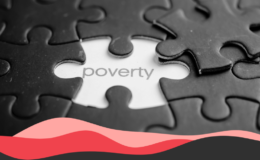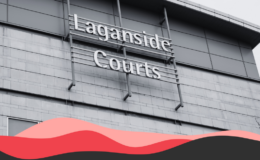A four-page leaflet circulated by the lobby group Truth Behind RSE NI (TBRNI) makes multiple claims regarding Relationships and Sexuality Education (RSE) in Northern Ireland.
We’ve taken a look and found the following:
- Abortion: The claim that “the Secretary of State wants […] abortion taught in the new school year of 2023/2024 at secondary schools” is ACCURATE. However, there is nothing to suggest that abortion is being encouraged or promoted.
- “Transgenderism”: The claim that “the Secretary of State wants transgenderism […] taught in the new school year of 2023/2024 at secondary schools” is INACCURATE. Neither the Secretary of State’s announcement nor the CEDAW report or its recommendations make any reference to what TBRNI term “‘transgenderism”.
- Children taught to obtain sexual pleasure: The claim that children will be taught to obtain sexual pleasure is INACCURATE. The CCEA framework suggests within a section on healthy relationships that GCSE-aged pupils (14-16) should be able to “describe pleasure, rights, empowerment, sexism and feminism”.
- Promiscuity: TBRNI also claim that “ironically, relationships and sexuality education programs fail to teach children about all of the emotional, psychological and physical health risks of promiscuous sexual activity”. This is INACCURATE. There are regular references to being self-aware of feelings and emotions, and ways to improve emotional wellbeing.
- Mandatory RSE lessons: The claim that RSE lessons are mandatory is INACCURATE. CCEA’s RSE Guidance for Parents and Boards of Governors explains that while there is currently no legislative provision permitting parental withdrawal from sex education, schools can grant requests from parents and carers on an individual basis.
- The current CCEA guidance for schools is much less detailed and prescriptive than the international documents about sexuality education that TBRNI highlight and base most of their leaflet on – only one of these (the UNESCO technical guidance) is even referred to by CCEA in their RSE curriculum hub.
- What is RSE?
Relationships and Sexuality Education (RSE) has been part of the Northern Ireland school curriculum since 2007. As well as conducting and moderating examinations, the Council for the Curriculum, Examinations & Assessment (CCEA) publishes resources to help teachers deliver the NI Curriculum. Its website describes RSE as “a lifelong process”.
“It helps children and young people acquire knowledge, understanding and skills, and develop attitudes, beliefs and values about relationships, sexual identity, and intimacy. Effective RSE, which is taught in a sensitive and inclusive manner, encourages children and young people to value themselves as individuals and to make responsible and well-informed decisions about their lives.”
RSE is taught through Personal Development and Mutual Understanding in primary school (Foundation and Key Stages 1 and 2 covering ages 4-11) and Learning for Life and Work at secondary school (Key Stages 3 and 4, ages 11-16).
The Department of Education notes that (at Key Stages 3 and 4) “issues relating to RSE may also be taught through other subjects including religious education (ethics), biology (the body and reproduction) and history (assessment of the treatment of minorities in the past compared to now).”
The statutory curriculum includes a prescribed minimum content in relation to RSE. Schools have flexibility to decide on how best to deliver RSE to meet the needs of pupils within the context of each school’s distinctive ethos (which can include the moral and religious principles held by parents and school management authorities).
All grant-aided schools must already develop and make available their own policy on how they will address Relationships and Sexuality Education (RSE), consulting with parents and pupils, and endorsed by the Board of Governors.
- What is changing? And when will it change?
On 6 June 2023, Secretary of State Chris Heaton-Harris announced that the UK Government was updating the requirements for the Relationship and Sexuality Education (RSE) curriculum in Northern Ireland.
According to the Northern Ireland Office, the changes were needed as “the Secretary of State is under a statutory duty under the Northern Ireland (Executive Formation etc) Act 2019 to implement recommendation 86(d) of the Report of the Committee on the Elimination of Discrimination of Women (CEDAW)”.
The NIO statement said that: “they will make age-appropriate, comprehensive and scientifically accurate education on sexual and reproductive health and rights, covering prevention of early pregnancy and access to abortion, a compulsory component of curriculum for adolescents” and “place a duty on the Department of Education to issue guidance on the content and delivery of the education” by 1 January 2024.
As part of the Northern Ireland Executive, the Department of Education has devolved responsibility for the local curriculum. However, there is currently no Minister in place.
The Secretary of State made Regulations to amend the Education (Curriculum Minimum Content) Order 2007 (Northern Ireland) to add additional topics to the RSE curriculum at Key Stages 3 and 4 (ages 11-16).
In a letter to schools in June, the Department acknowledged that while schools may already be addressing the topic of abortion in their RSE programme, “there is no expectation that you would do so ahead of the Guidance being issued by the Department accompanied by support materials later in the year”.
The additions to the minimum RSE content will be taught no sooner than 1 January 2024.
- Who is CEDAW and what did their report say?
CEDAW is the United Nations Committee on the Elimination of Discrimination against Women. Paragraph 86 (d) of the report recommended that the UK Government:
Make age-appropriate, comprehensive and scientifically accurate education on sexual and reproductive health and rights a compulsory component of curriculum for adolescents, covering prevention of early pregnancy and access to abortion, and monitor its implementation.
This is the paragraph that the Secretary of State’s announcement word-for-word refers to.
- Abortion?
The claim is accurate that “the Secretary of State wants … abortion taught in the new school year of 2023/2024 at secondary schools”.
However, there is nothing to suggest that abortion is being encouraged or promoted.
The Secretary of State (and the CEDAW recommendations) just require “age-appropriate, comprehensive and scientifically accurate education on sexual and reproductive health and rights, covering prevention of early pregnancy and access to abortion”.
And (see below) parents and carers will be able to withdraw their children from part or all lessons that cover “prevention of early pregnancy and access to abortion”.
- “Transgenderism”?
Neither the Secretary of State’s announcement nor the CEDAW report and its recommendations make any reference to what Truth About RSE NI refer to as ‘transgenderism’.
While the term ‘transgenderism’ is never used, the existing RSE curriculum already requires teaching on LGBTQ+ matters including the use of appropriate terminology and language and understanding the impact of homophobic, biphobic and transphobic bullying.
Meeting CEDAW’s 86 (d) recommendation does not require any change to the curriculum or guidance around sexuality. This part of the claim is not accurate.
- Teaching children to obtain sexual pleasure?
Does CCEA suggest that children are taught “how to obtain sexual pleasure in various ways” as claimed by TBRNI?
No.
The framework suggests within a section on healthy relationships that GCSE-aged pupils (14-16) should be able to “describe pleasure, rights, empowerment, sexism and feminism”.
A section on sexual behaviours for older students (post-16) suggests that they should be able to recognise that sex should be pleasurable and that some behaviours can be dangerous, be respectful of people’s different desire about types of sexual behaviour/intimacy, recognise that both male and female orgasms are a sensation of intense sexual pleasure, know the role of Viagra and why it may be needed.
While there is a statutory minimum set of content that must be taught, the method in which schools and teachers deliver the curriculum is not set in stone. CCEA provide a non-statutory RSE Progression Framework (PDF) that shows how different themes could be covered across different stages and ages.
In a section claiming that UNESCO and the World Health Authority are “openly promoting [the teaching] to young children [of] masturbation, pornography, sexual techniques, encouragement of minors to engage in same sex relationships”, TBRNI’s leaflet describes the UNESCO’s International Technical Guidance on Sexuality Education, as “the official guideline for all public schools around the world.”
This mischaracterises the document which explains in its foreword that the “guidance enables national authorities to design comprehensive curricula that will have a positive impact on young people’s health and well-being”. The foreword adds that the guidance “is voluntary, based on the latest scientific evidence, and designed to support countries to implement effective sexuality education programmes adapted to their contexts”.
CCEA says that the themes are “aligned” to international evidence-based frameworks like UNESCO’s though it is clear from reading the CCEA framework that it goes into much less detail (54 pages) than the much larger UNESCO document (139 pages).
The whole of page three of TBRNI’s leaflet is devoted to a description of the World Health Authority’s Standards for Sexuality Education. TBRNI describe the WHO document as an example of a “driving force behind RSE”. However, it is not referenced in any support material on the CCEA RSE website.
- Promiscuity?
TBRNI also claim that “ironically, relationships and sexuality education programs fail to teach children about all of the emotional, psychological and physical health risks of promiscuous sexual activity.”
This misrepresents the evidence on the CCEA RSE hub and the non-statutory RSE progression framework.
There are regular references to being self-aware of feelings and emotions, and ways to improve emotional wellbeing. Regarding physical health risks of multiple sexual partners, a Key Stage 4 unit specifically suggests “limiting your number of sexual partners” as a way of preventing Sexually Transmitted Infections and to “avoid overlapping relationships”.
- Are RSE lessons mandatory?
CCEA’s RSE Guidance for Parents and Boards of Governors explains that while there is currently no legislative provision permitting parental withdrawal from sex education, schools can grant requests from parents and carers on an individual basis. Announcing the changes in a written statement to the House of Commons, the Secretary of State, acknowledged this “mechanism” with regard to the new curriculum aspects on abortion.
In response to queries from FactCheckNI, a representative from the Department of Education (DoE) stated:
“The Department is required to make and lay regulations to provide for a parent to have their child excused from classes providing age-appropriate and scientifically accurate education on sexual and reproductive health and rights covering prevention of early pregnancy and access to abortion.”
- What next?
According to the Department of Education, officials have already commenced work on a full public consultation to inform how RSE is extended in Northern Ireland. At the time of publishing this fact check, the consultation has not yet been launched.




